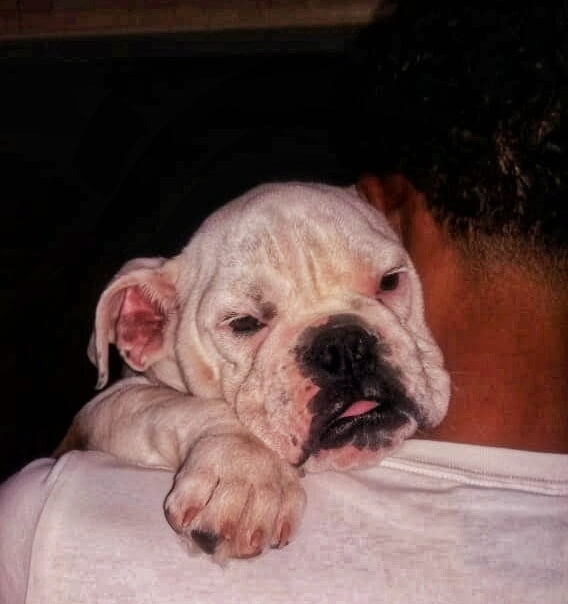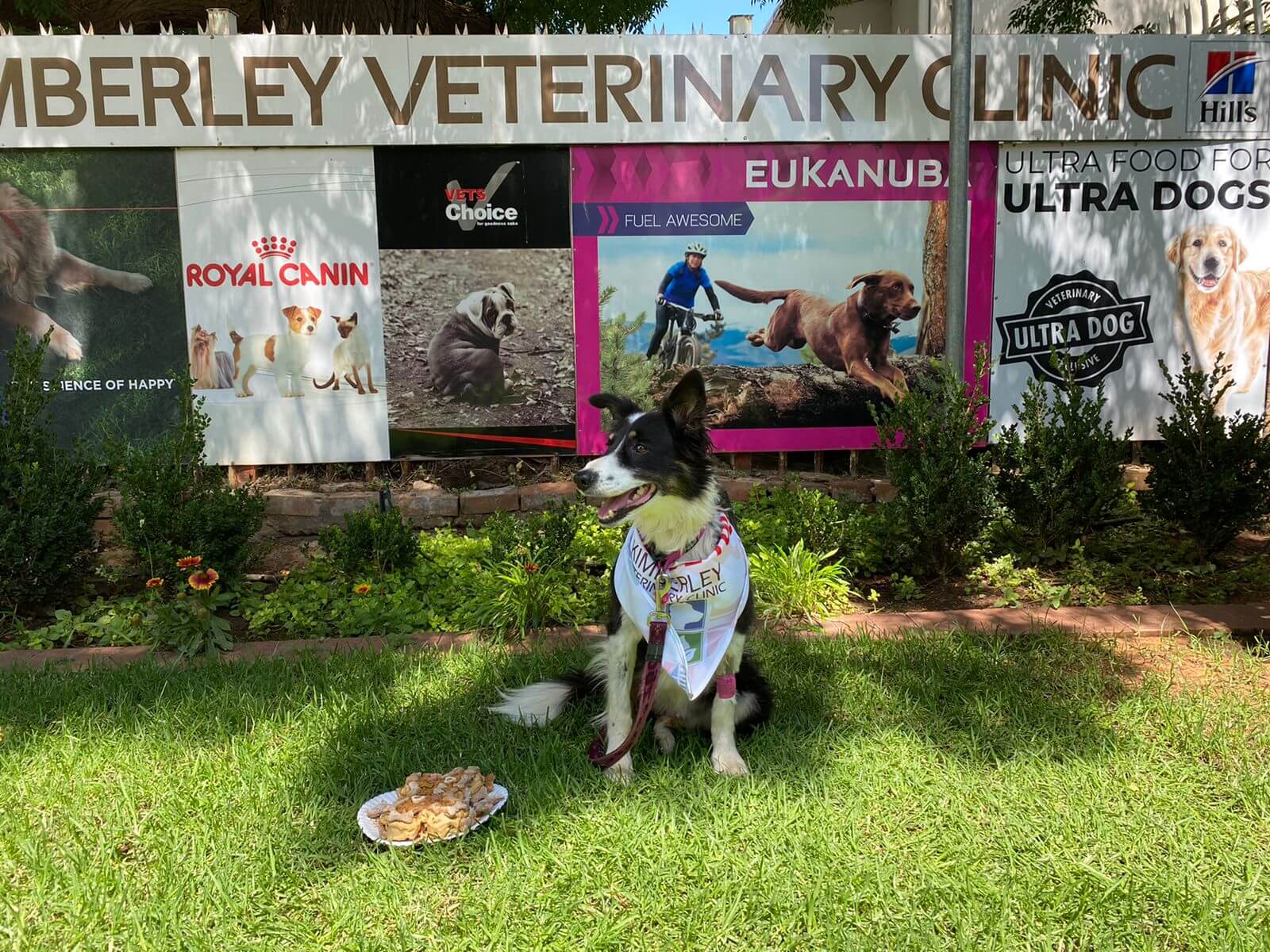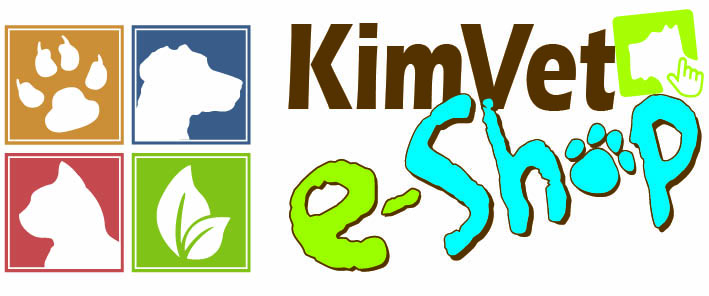by Rina Van Eeden | Mar 27, 2023 | Cats, Dogs
Your pet has been bitten by a snake… What now?
We can attest that this is of every pet owner’s worst nightmare. One of them at least.
Snakes become more active once the weather warms up. There is a steep increase in snake bites during warmer weather, and we have seen an enormous amount of snake bite cases over the last few months.
To make this even worse, there is no antivenom available anywhere in South Africa.
A snake bite is classified as an emergency. This means that you need to get your pet to a vet ASAP. They will be treated promptly with intravenous fluids and antivenom, should there be available.
The first question we’re going to ask is, what snake was involved? This information is very important as it greatly influences the prognosis and treatment plan. There is no need to kill the snake, this places you and your pet at unnecessary risk. A basic description of the snake will do just fine.
Another will be whether your pet has received antivenom before, this could also influence the treatment plan.
Most pets are bitten around the face and limbs. Some have venom spat into their eyes, in this case, try to rinse your pet’s eyes with running water if they allow, then get to the vet for further treatment.
Snake Bite Symptoms To Look Out For:
While you may not always see the bite marks, there are some key symptoms to look out for.
Profuse salivation, swelling, especially around face, neck and limbs, rapid and shallow breathing, shivering/shaking, vomiting, dilated pupils, weakness and in severe cases, total collapse.
Symptoms will vary depending on the type of snake. Some are cytotoxic (eg. Puff Adder), others neurotoxic (eg. Cape Cobra) and haemotoxic (eg. Boomslang).
If you suspect your pet has been bitten by a snake, call your vet ASAP. Snake bites are emergencies, and the quicker the treatment can begin, the better the chances are for survival.
While we realsie that this is not always possible, preventing a snake encounter is best. If you encounter a snake on your daily walk, stop moving and slowly retreat, giving the snake room to escape. Do not allow your dog to sniff at the snake. If you’re in a known snake habitat, keep your dog on a leash, and preferably keep to open trails where snakes are easier to spot. If your dog is particularly curious and pawing at something, call them away from the area.
Prevention is better than cure, and it is better safe than sorry.
For more information on snakes and snake bites, please visit the African Snake Bite Institute website: https://www.africansnakebiteinstitute.com/snakebite/#pets
Like this:
Like Loading...

by Rina Van Eeden | Feb 14, 2023 | Feel Good Stories, Fun Facts!, Our Staff
Meet our AHT!
Xanri joined our eccentric team while studying to become an Animal Health Technician (AHT).
Originally from a farm in Kathu, she graduated from Kathu High School knowing she wanted to make an impact within her community.
What Is An Animal Health Technician?
You may have heard about Animal Health Technicians before, but what are they exactly? Animal Health Technicians, or AHTs, are para-veterinary professionals that make very important contributions to the health and well-being of both animals and people.
They take on the responsibility to promote animal health, relieve the suffering of animals and assist in the saving of animal lives.
While they primarily work with farm animals their training includes treatment of companion animals as well.
Note, Animal Health Technicians and Veterinary Nurses are not the same. The two fields have very different qualifications and their scope of work varies greatly.
Even though she’s responsible for many things here at the clinic, we believe her charm and charisma are the attributes she’s most known for.
This young go-getter officially became a qualified, registered AHT at the end of 2020, and has only flourished since then. The impact she has made in our community in this short time is tremendous!
What she loves most about her days here in Kimberley is educating farmers and clients and being with her family, doggos included!
Her advice to her 15-year-old self? Stop complicating everything and worrying about everything, take life as it is, it will all work out in the end.
When asked what animal she would choose to be, she looked dumbfounded and said, quite simply, “‘n worshond!”
“They may be small, but they have the heart of a lion, and they make my days a million times better.”
Having a menagerie of Dachshunds of her own, this was the only logical conclusion.
Her hobbies include playing with her dogs, scrap booking and fishing.
We have nothing but love for this incredible woman!
For more information on Animal Health Techs, please visit the SAVC website: https://savc.org.za/animal-health-technician/
Like this:
Like Loading...
by Rina Van Eeden | Sep 21, 2022 | Cats, Dogs
It’s no surprise that, out of all the members of our family, our pets’ dental care is the most neglected. They cannot brush their teeth or floss and this goes on, in many cases, for years.
Dental care forms as important a part of primary animal healthcare as vaccinations or sterilisations. And, as with vaccinations and sterilisations, neglecting to pay attention to dental health can, and will, have disastrous and extremely painful results.
This is one of the primary reasons that teeth are pulled when you bring your pet in for a dental cleaning.
It is important to address the problem before it progresses too far.
In a normal mouth, teeth are white, or near white, and the gums attach smoothly to each tooth. Plaque is collected on the tooth daily, but is brushed and flossed away. This ensures it never mineralises to tartar.
Tartar is solid and gritty; it is also filled with bacteria. This stops the natural mechanism of tooth cleaning and leads to tenderness and inflammation around the tooth and gum.
This process eventually leads to periodontal disease.
What Is Periodontal Disease?
Periodontal disease is a disease around the outside of the tooth. The gum around the tooth forms pockets due to loose ligaments that are supposed to keep the tooth firmly in place. Food, grass, hair and subsequently bacteria fill those pockets. This leads to infection, even more pain, inflammation, and eventually severe gum recession from the base of the tooth.
Severe tartar build-up compromises blood flow to the tooth and destroys the integrity of the root of the tooth. This also compromises bone in which the tooth sits.
Bone loss and severe periodontitis, once it has begun, cannot be reversed. This is why many teeth need to be removed, but this also increases the risk of jaw fractures due to severely compromised bone. Rotten teeth that are no longer attached to the gum and that are filled with bacteria and tartar cause an unimaginable amount of pain. Those teeth that simply cannot be saved need to be removed entirely in order for your pet to be pain free.
Some common reasons for tooth extractions include:
- severe periodontal disease,
- broken teeth,
- severe gum recession and tooth resorption,
- certain inflammatory conditions and advanced caries/cavities.
In young dogs and cats, deciduous teeth, or persistent baby teeth, are also strong indicators for tooth extraction.
Believe when we say, we would love to save as many teeth as we can during a dental, but we would much rather have your pets be happy and pain free. If removing a tooth can do that, then that is indication enough.
Not to mention, all that bacteria sitting in the mouth gets transported to other areas of the body, leading to secondary infections or abnormalities of the heart, liver and kidneys. Virtually anywhere where the blood flows…
If these facts aren’t enough to scare any pet owner into action, then we don’t know what is.
The best way to prevent these things from happening is to start home dental care from the early stages of your pet’s life.
This includes brushing your pet’s teeth at least twice weekly, using oral gels and wipes, providing safe dental treats and chews and perhaps even considering putting your pet on a dental specific diet.
Remember, do not neglect your pet’s dental health. Imagine how you would feel if you don’t bush your own teeth for 10 years…
For more information on pet dental care, visit our blog: https://kimvet.co.za/dental-disease-in-pets/
or the trusted petMD website: https://www.petmd.com/dog/grooming/evr_dg_oral_hygiene_and_your_dogs_health
Like this:
Like Loading...

by Rina Van Eeden | Jul 18, 2022 | Dogs, Feel Good Stories, Patient of the Week, Vaccinations
This little bundle of joy is Sugar.
Baby Sugar is another survivor of one of the deadliest diseases among puppies all around the globe – Canine parvovirus.
What Is Canine Parvo Virus (CPV)?
Canine parvovirus, or Parvo, is a highly contagious viral disease in dogs. While mostly seen in puppies from the ages of 2 – 6 months that aren’t adequately vaccinated, we have seen quite a few older canines. One was as old as 11 years, that have fell victim to this awful virus, whether vaccinated or not.
Parvo causes severe diarrhoea, sometimes with blood, vomiting, severe dehydration, weakness and lethargy.
Once your pup has been infected with this virus, it takes a few days for it to make its way to where it wants to be, the fast dividing cells. This is primarily the gut and the bone marrow, but in very young puppies the virus can even affect the heart muscle!
The intestine is where parvo causes the most damage, destroying the epithelial layer of the gut and preventing new, healthy epithelia from forming. By preventing the replacement of the old and dying cells, the virus leaves the intestinal surface unable to adequately absorb nutrients, the gastrointestinal tract cannot prevent fluid loss, or prevent bacteria from moving from the gut into the body. This is why these puppies dehydrate so rapidly and acquire many secondary bacterial infections on top of the initial virus.
What Can I Do To Prevent CPV?
There is no cure for parvo. All we can do is treat the symptoms and manage any secondary infections. In hospital we rehydrate the patient, provide adequate feeding, mostly via feeding tubes and treat their severe nausea and diarrhoea.
Unfortunately, very few pups survive this ordeal unless admitted to hospital. And even then the odds aren’t always on our side.
The survival rates for in-house patients on drips and with intravenous medication is barely over 75 – 80%. If they are taken home for treatment, this number drops to well below 50%.
Preventing CPV:
The only way to properly fight this virus, is to vaccinate your pets. While vaccines may not completely prevent your dog from getting parvovirus, it does decrease the severity of clinical signs dramatically. This means that those one or two or three vaccinations you got for your pet is literally the difference between life and death.
Getting rid of parvo in the environment proves just as difficult as treating it.
This small virus is extremely hardy and can survive in your environment for months after exposure. In some cases even years. It survives through the harshest winters and thrives in the summertime. It is nearly impossible to get rid of it once it has been introduced onto your property. Parvo is transmitted via many different routes, including on clothing or shoes.
Sugar is one of the lucky ones. She was admitted to hospital for almost 2 weeks.
The standard vaccination protocol for puppies is as follows – They get their first vaccination at 6 weeks, their second at 9 weeks, their third at 12 weeks with their first rabies booster and then at 14 weeks they get their last puppy vaccination. Thereafter they need yearly boosters.
For more information on puppy vaccinations, see our blog: https://kimvet.co.za/canine-vaccinations/
The kindest thing you can do for your puppy is to protect them from harm. Vaccines save lives.
Like this:
Like Loading...

by Rina Van Eeden | Mar 2, 2022 | Dogs, Feel Good Stories
Jessie the Border collie is a scent detection dog working in the field of conservation research. Over the past 7 years, the role she played in the research of elusive and endangered species has been absolutely paramount.
Unfortunately, in August Jessie was diagnosed with Lymphoma, a rather serious cancer of the lymph nodes. About 6 months ago, Jessie started her journey to recovery and is undergoing chemotherapy at our clinic.
This was a very challenging endeavour, both for Jessie and ourselves, as this was our first real attempt at long-term chemotherapy.
What is Canine Lymphoma?
Malignant lymphoma is a common cancer in dogs. It is a deadly disease caused by the harmful growth of lymphocytes. Although lymphoma is common, the causes and origin of the disease aren’t fully understood.
Treatment of lymphoma with chemotherapy, using a combination of drugs is often successful. More than 90% of all dogs have been know to achieve complete remission.
We’re happy to say that Jessie is doing exceptionally well. Now, she will have some more time and energy to spare to continue her crucial research and conservation efforts. She’s also getting a new sister to train so that she can retire in a year or two.
What Has Jessie Accomplished?
Jessie started her career by sniffing out the scent of the Giant Bullfrog as part of a master’s degree study in Environmental Science at NWU. After this massive achievement, she started working with the Endangered Wildlife Trust in the field of conservation, focussing on the Critically Endangered Riverine Rabbit. (Including a project for the National Geographic Society, so be sure to check that out! @insidenatgeo)
In the last year, Jessie has also been involved in a study of Golden moles species on the West Coast of South Africa, funded by Re:Wild.
Unfortunately, after some time in remission, Jessie’s cancer returned and she has since passed. We miss her dearly and will never forget all the amazing things she has accomplished.
For more information about lymphoma in dogs, please visit the trusted petMD website – https://www.petmd.com/dog/conditions/cancer/c_dg_lymphoma
For more about Jessie, please check out our blog – https://kimvet.co.za/jessie-ewt-canine-lymphoma/
Like this:
Like Loading...




